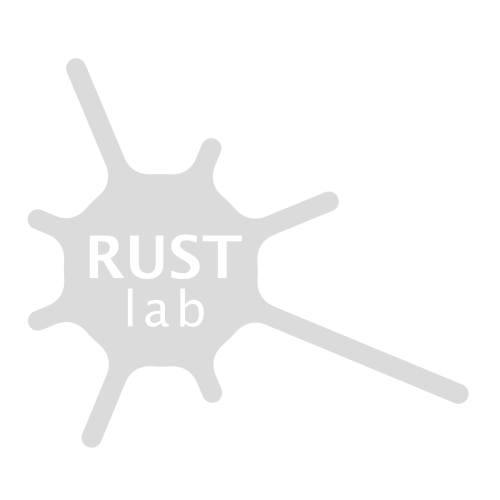The upcoming week we have another lecture. However, note that this time it will be in German and on Wednesday, 4-6pm.
We are delighted to have Stefan Rieger and Ina Bolinski with us, who are colleagues from the Ruhr University (Institut für Medienwissenschaft). (Go to English Abstract)

Abstract (see also their website)
Titel: Artenübergreifende Kollaborationen. Zum Mulltispiecies Turn
in der Medienwissenschaft
Die Forderung nach artenübergreifender Kollaboration verändert gängige Positionsbestimmungen zwischen Menschen, Tieren, Pflanzen, Artefakten und einer zunehmend mediatisierten Umwelt. Der anthropozentrische Blick und die über lange Zeit verbürgte Überlegenheit des Menschen gegenüber dem Tier taugen nicht länger zur Beschreibung aktueller Lagen. Nicht zuletzt unter dem Druck der Human-Animal-Studies, post- und transhumaner Denkströmungen sowie veränderter Vorstellungen von Handlungsträgerschaft gewinnen Kollaborationen und Kommunikationen zunehmend an Kontur. Konsequent ist deshalb die Erweiterung der Akteure, das systematische Einbeziehen von Pflanzen, Pilzen, Insekten, Mikroben, technischen Artefakten und schlussendlich die Öffnung zu lange Zeit in Misskredit geratenen Konzepten wie dem der Ganzheit.
Das resultiert in einer Bewegung, die man bei allen Vorbehalten gegenüber der Rede vom Turn als Multispecies Turn in der Gegenwartskultur beschreiben kann. Diese Bewegung hat ihren Ort in Wissenschaft, Kunst, Politik und Gesellschaft. Eine Beforschung aus der Perspektive und mit dem Rüstzeugt einer kulturwissenschaftlich ausgerichteten Medienwissenschaft drängt sich geradezu auf, dreht sich dieser Turn doch auch immer wieder um die Kollaboration mit medialen Techniken. So werden Tiere und Organismen konkret als Sensoren für die Krebserkennung oder als biologische Speicher für kulturelle Überlieferungsszenarien der Zukunft verwendet – zwei exemplarische Bereiche, in denen sich ihre Überlegenheit gegenüber technischen Varianten auszahlt. Was zwischen den Arten changiert, ist bisher theoretisch höchstens ansatzweise erfasst. Damit ist ein Defizit benannt, auf das die neu entstehende Disziplin der Animal-Computer-Interaktion ausdrücklich hinweist. Dieses Defizit zu schließen und dabei sowohl die Ebene der ethischen Reflexion und die einer politischen Verantwortlichkeit im Blick zu halten, ist neben der Rekonstruktion exemplarischer Phänomene erklärtes Ziel des gesamten Vorhabens.
English Abstract
Collaborations across species are about to challenge well-established taxonomical and epistemological divides between humans, animals, plants, cultural artifacts and increasingly mediated environments. An anthropocentric position, which has emphasized humankind’s island position and man’s pre-eminence above other living beings, does not longer work under these new conditions. As a result of the interdisciplinary Human-Animal-Studies, or post- and transhumanist approaches within various fields of theory, plus changing understandings of agency, new concepts of collaboration and communication begin to take shape. Consequently, individual species within the kingdoms of plants, fungi, insects, or microbes as well as technological artifacts are increasingly being reflected upon as actors. With this shifting focus on non-human actors, the presumably obsolete concept of holism reemerges as a fruitful construct.
All of the above results in what can be described as the Multispecies Turn within contemporary culture. It is located in diverging social fields such as hard and soft sciences, arts, politics, and society. Media studies, as a branch of the humanities with a focus on cultural techniques, can play a crucial role with regard to this Turn, as it often reflects on collaborations which take place with the help of media technologies or within medial environments of various living and non-living actors. Be it dogs as sensors for cancer diagnostics or bacteria’s DNA as data storage – biological actors have already surpassed technological variants in various fields of hard sciences. But what is happening between the species also needs theoretical reflection – a deficit which is also mirrored in the establishment of new fields of research such as Animal-Computer-Interaction. While working on exemplary phenomena, the final goal of our research is to close a theoretical and epistemological gap while also addressing the ethical and political implications of these new environments.
Zoom
We will be using Zoom again to share this discussion. Join us with the following link:
https://ruhr-uni-bochum.zoom.us/j/99886635576?pwd=R3lMdmlIMjRBSWhnazNNbERPM1phdz09
Or join with these credentials:
Meeting ID: 998 8663 5576
Password: raum4?
We will “shut” the door to the Zoom room at 4.30pm, but you can send an e-mail to rustlabAT@rub.de in case you’re late, then we open again for you.
